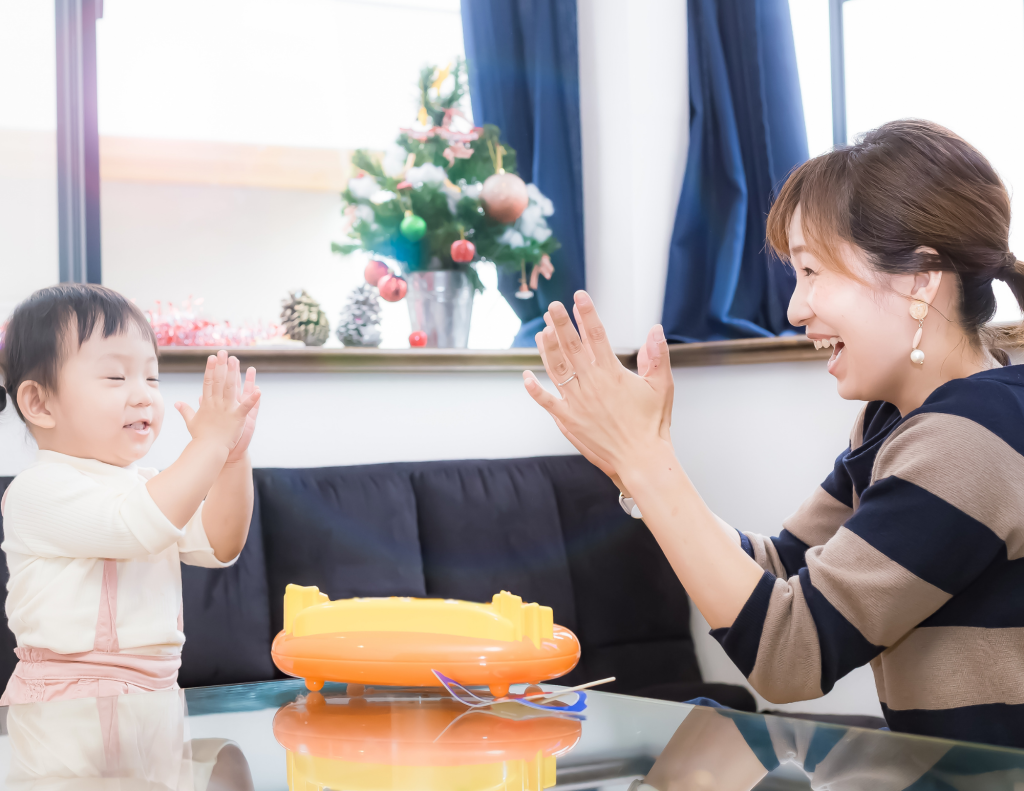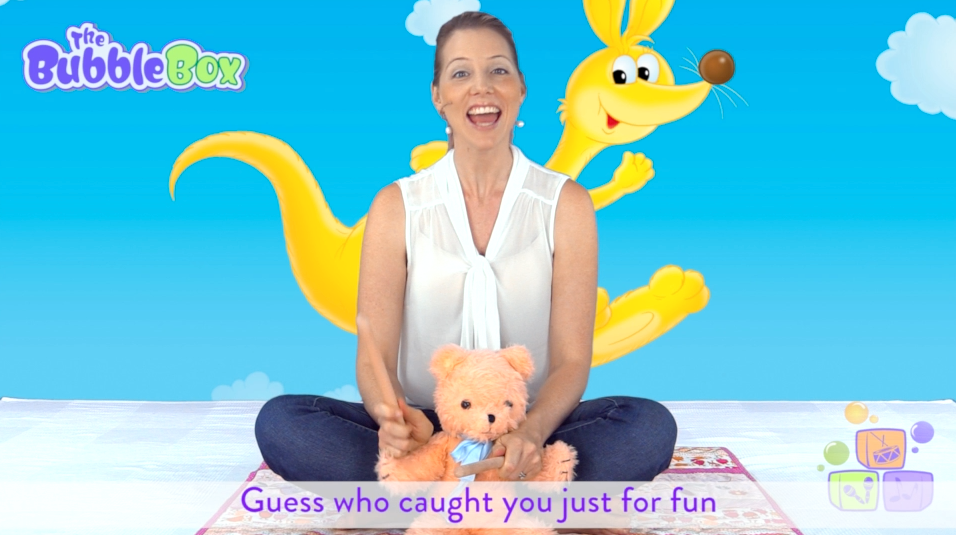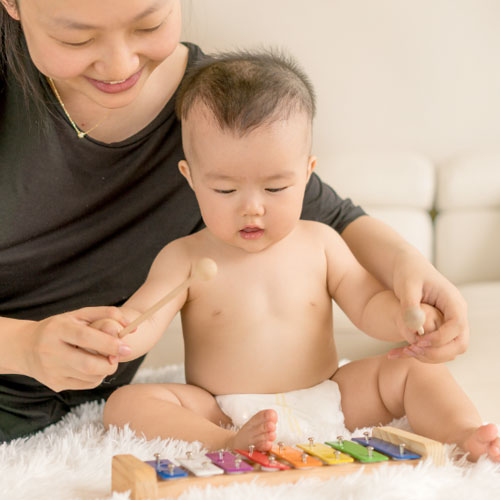As an early years teacher, I have taught for many years at a school in Brisbane, Australia that has predominantly Asian students. Many of my students are from non-English speaking backgrounds. Every day in my class we sing songs, recite nursery rhymes, listen and move to music.
I am always amazed by how quickly my non-English speaking students learn to understand and speak English. I’ve often thought that regular exposure to music fast tracks their language learning. A recent study backs this theory, as experts discovered music helps children learn foreign languages.
When can I start teaching my child English through music?

Although the children I teach are four and five years old, a child is never be too young to begin learning English! As a matter of fact, the optimal age for your youngster to begin learning a second language is while they are a baby or toddler.
Babies have a remarkable ability to detect all sounds in all languages, according to numerous studies. Between the ages of six and twelve months, infants begin to reject sounds and words that they do not hear in their daily environment. They become experts in their native tongue, reducing their ability to learn a foreign language. However, babies who hear foreign speech throughout their first nine months of life have an easier time learning languages in school or as adults.
How does music help English language learning?
Actually, music is one of the most effective ways to teach a language. It aids and encourages a child’s English learning in three ways.
1. Music boosts brain development
You see, all learning relies on brain development and music is like a superfood for the brain! It is one of the only activities that activates, stimulates and uses the entire brain.
Learning to talk and learning to make music have a lot in common. In fact, music and language are both processed by the same two memory systems in the brain.
One study of 39 babies, by scientists at the University of Washington in the US, found brain regions key to music and speech were sharper in nine-month-old boys and girls who had attended musical play sessions. The musical babies were better at recognising sound patterns and predicting rhythm patterns. Both of these skills are essential for learning to speak or take up a new language.

2. Music promotes language development
Language is musical – it is filled with patterns, rhythms, rhymes, and intonations. It would be impossible to learn to speak without the ability to hear music.
In other words, babies develop an awareness of all of the sounds of language through music. They also learn the meanings of words, especially when their parents sing songs and rhymes to them.
“Lullabies, songs and rhymes of every culture carry the ‘signature’ melodies and inflections of a mother tongue, preparing a child’s ear, voice and brain for language.”
Sally Goddard Blythe – Author, lecturer and International Director of The Institute for Neuro-Physiological Psychology.
3. Music is a natural and fun way to learn
Learning through music is an enjoyable experience. It grabs and holds the attention of young children who are well-known to learn through play. Music is a much more effective method of learning for young children than rote methods.
3 tips for teaching your baby English
The really good news, though, is that you don’t have to be fluent in English or a music expert to do music activities with your baby. Here are my top three tips for introducing your baby to English at home:
1. Sing English songs, rhymes and lullabies to your baby

Babies are much more responsive to their parents singing voices than to recorded music. The best way for you to learn English songs and rhymes is to watch a real person (rather than an animated cartoon).
In addition to singing, including actions or hand movements with the songs and rhymes helps babies understand the meaning of words and builds their English vocabulary. You can find a great range of English lullabies, songs and rhymes with actions in my online program of music activities for babies. I would recommend learning a few songs/rhymes each week and repeating them over and over again during daily routines such as nappy change time or meal times.
2. Play instruments with your baby
Not only is playing basic percussion instruments with your baby lots of fun but it also expands areas of their brain that master language. Put on some music (with English lyrics) to play along to and wow, what a language learning boost! There are plenty of music making activities in my program.
3. Listen and move to music with your baby
Consider playing an album of children’s songs such as The Wiggles, as often as you can as you go about your day. This provides the ongoing exposure to English that is so important at young ages. Try dancing with your baby to some of the songs as well. Combining movement with music activates different areas of the brain at the same time and once again will supercharge your baby’s ability to learn English.
In conclusion, just like my students, your baby’s second language learning is sure to be fast-tracked through music. You will soon be clapping, smiling and feeling proud to hear them speak their first English word.


0 Comments